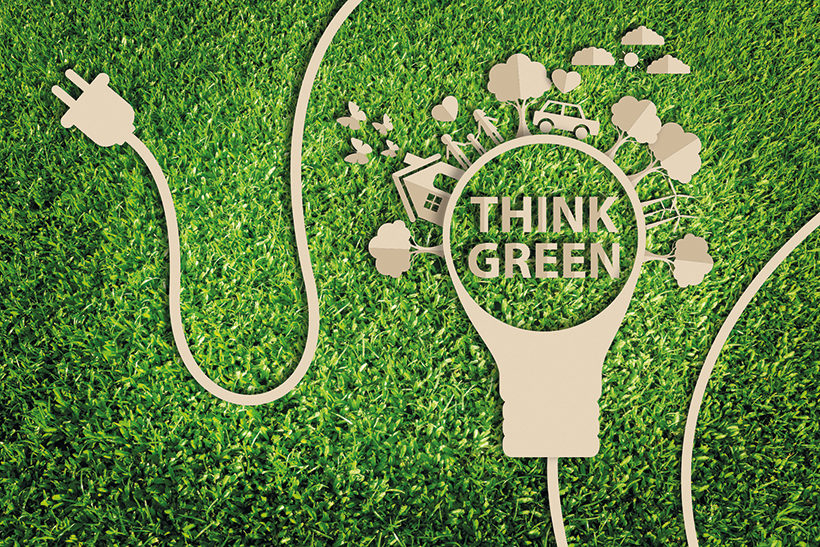Steve Rowe gets all eco-friendly and wonders how ‘green’ our future lifestyles will be…
Slouching at my computer, glumly staring out at the rain soaking my recently hung-out washing, has got me thinking about global warming and the potential for wetter winters and springtimes in the UK, as well as hotter, drier summers.
When it comes to global warming, I definitely believe things are changing and we need to act quickly to change our consumption of fossil fuels, which will also help to improve the quality of the air we breathe. The cynical side of me also believes that perhaps we, and our various communication media, also need something to collectively worry about. It used to be the constant threat of global nuclear war that was the big threat, keeping everyone worried, but this has now been replaced by fears around global warming.
Anyway, I wonder how the move towards green technology will affect the park home lifestyle? Most of us live in homes heated by gas, either LPG or mains gas and, although this is better than the likes of heating oil when it comes to emissions, it’s still not going to be green enough for the long-term future.
Perhaps we will have to start switching to electricity for our heating systems, with the aim of using power that is generated from renewable energy such as wind turbines. Modern park homes are generally much better insulated than older brick-built homes, so electric heating might not be too expensive.
In the more distant future, there may even be the possibility of using hydrogen to heat our homes, perhaps supplied in a similar way to current LPG gas bottles or tanks. Hydrogen technology, in the form of fuel cells, is being developed for cars and is already being used on the roads for transport such as buses. If the infrastructure is developed to produce large quantities of hydrogen then it may also become cheap enough to find its way into our homes, for heating or even generating electricity in remote areas.
When it comes to our personal transport, the fairly limited mileage that most retired people in park homes cover each week, with perhaps just a trip or two to the local shops, should mean that electric cars are a viable option. The main limitation for electric-only cars is battery range, so if you don’t cover too many miles on each trip, then you shouldn’t ever have to worry about the power running out.
In the future, hydrogen-powered cars, with fuel cells, might be as quick and easy to fill up as current petrol cars but there’s probably a way to go before this technology becomes widely available for our cars. Plus, if battery technology improves, perhaps we’ll never need hydrogen anyway.
For those park home residents who can afford it, and who want to go green, I guess a full-electric car is probably a good option for now, especially if you have your own driveway or garage where you can fit an electrical charging point. Petrol technology is still going to be around for a while, though, so it might be worth hanging onto your current petrol runabout in the short term.
Returning to homes again, I think the park home sector of the housing market is one of the best placed to adopt new green technologies, and some manufacturers are already producing homes with standards of insulation that are much higher than industry requirements. Because park homes, and indeed holiday caravans, are built in large factories, rather than just thrown together in a muddy field like traditional brick-bult houses, there’s much more potential for designing-in green features such as thicker insulation or triple-glazed windows, or even new forms of heating.
If you watch TV programmes like Grand Designs you’ll see that some people are now building ‘passive eco homes’, where the houses are so well insulated and draught-proofed that they require practically no energy to heat them, with some just relying on solar-panel energy. It would be great to see more of this type of home in the park home sector, where factory-style production should make it easily possible. What a great selling point for a manufacturer if they produced a range of passive eco homes like this, even if they were more expensive to buy? Just think of the publicity this would generate. Any higher initial purchase cost could be weighed against years of saving on energy bills.
Anyway, enough for now, here’s a corny joke to end on as usual. Where’s the best place to retreat if ghosts are haunting your home? The living room!
Get in Touch
If you have any comments for Steve, perhaps with your own life observations or jokes, drop him an email at: steveparkhome@hotmail.com



